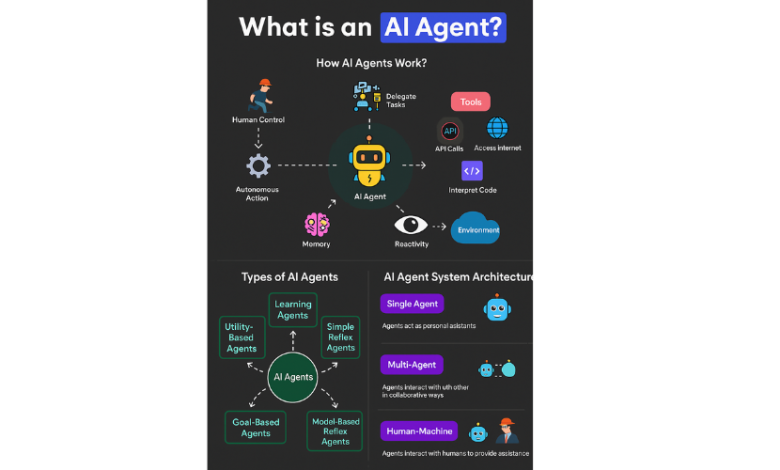
AI agents are emerging as one of the most transformative developments in workflow automation. Unlike traditional automation tools, which follow rigid, pre-programmed rules, these systems are goal-driven, adaptable, and capable of acting with minimal human oversight. They’re not just executing instructions, they’re making decisions, adjusting to changing conditions, and orchestrating multiple processes at once.
When deployed strategically, AI agents can become the invisible conductors of a business’s operations, ensuring that complex workflows run smoothly and efficiently. But their power lies in more than just speed, they bring a level of responsiveness and adaptability that older automation technologies simply can’t match.
From Static Processes to Adaptive Intelligence
The history of workflow automation is a story of increasing sophistication. Early tools like macros and RPA scripts removed repetitive work but couldn’t handle nuance. Generative AI expanded possibilities by creating content, writing code, and answering questions on demand.
AI agents represent the next leap. They can break down a high-level objective into specific tasks, execute those tasks, adapt if the situation changes, and keep the process moving without waiting for further instruction. This makes them especially effective in environments where real-time decision-making is critical.
Core Capabilities That Redefine Automation
- Autonomy: Agents can operate independently, acting on goals rather than step-by-step instructions.
- Goal Orientation: They prioritize outcomes, adjusting workflows dynamically to achieve them.
- Contextual Awareness: They understand the relationships between different workflows, anticipate bottlenecks, and optimize handoffs.
These capabilities make AI agents more than just process executors—they become workflow strategists, able to coordinate people, systems, and data in real time.
Why AI Agents Matter for Workflow Automation
Adopting AI agents in automation strategies can lead to three major advantages:
- Proactive Efficiency: By managing entire processes without pause, agents reduce delays caused by handoffs between systems or people.
- Higher Accuracy: Continuous monitoring allows them to detect and correct errors before they escalate.
Agility Under Change: Agents can respond instantly to new information or shifting conditions, keeping work on track without human intervention.
In industries where every second counts, like logistics, finance, or customer service, these benefits translate directly into competitive advantage.
Implementing AI Agents Effectively
While the potential is huge, AI agents aren’t a “set-and-forget” solution. To get the most from them, organizations should:
- Define Clear Roles: Give each agent a specific scope to avoid duplication or misalignment.
Enable Coordination: Build systems that allow agents to share data and work together seamlessly.
- Maintain Human Oversight: Keep humans in the loop for governance, strategic direction, and handling exceptions.
Without these safeguards, organizations risk creating fragmented workflows or overloading agents in ways that reduce their effectiveness.
Leadership in the Age of Hybrid Teams
The rise of AI agents changes the role of leadership. Managers are now responsible for orchestrating hybrid teams, made up of both human employees and autonomous systems. This requires:
- Technical Fluency: Understanding how AI agents work and where they excel. ● Governance Skills: Establishing ethical boundaries, operational rules, and accountability frameworks.
- Human Connection: Maintaining creativity, vision, and trust in a workplace where much of the execution is automated.
In this environment, leaders become more like conductors, ensuring the different “instruments” in their organization, human and machine, play in harmony.
The Future of Workflow Automation
Looking ahead, AI agents will evolve into multi-agent networks that can collaborate across departments, companies, and even entire industries. Paired with IoT devices and robotics, they could enable fully integrated digital-physical workflows.
We can also expect a stronger regulatory focus, with standards emerging around transparency, accountability, and safe deployment. Organizations that embrace this proactively will be better positioned to innovate while maintaining trust.
AI agents mark a turning point for workflow automation. They bring adaptability, autonomy, and continuous decision-making into processes that once ran on rigid, inflexible scripts. They won’t replace human workers entirely, but they will redefine human roles, freeing people to focus on strategy, creativity, and relationship-building.
Businesses that learn to manage hybrid human-AI teams will set the pace for what comes next, working not just faster, but smarter.




